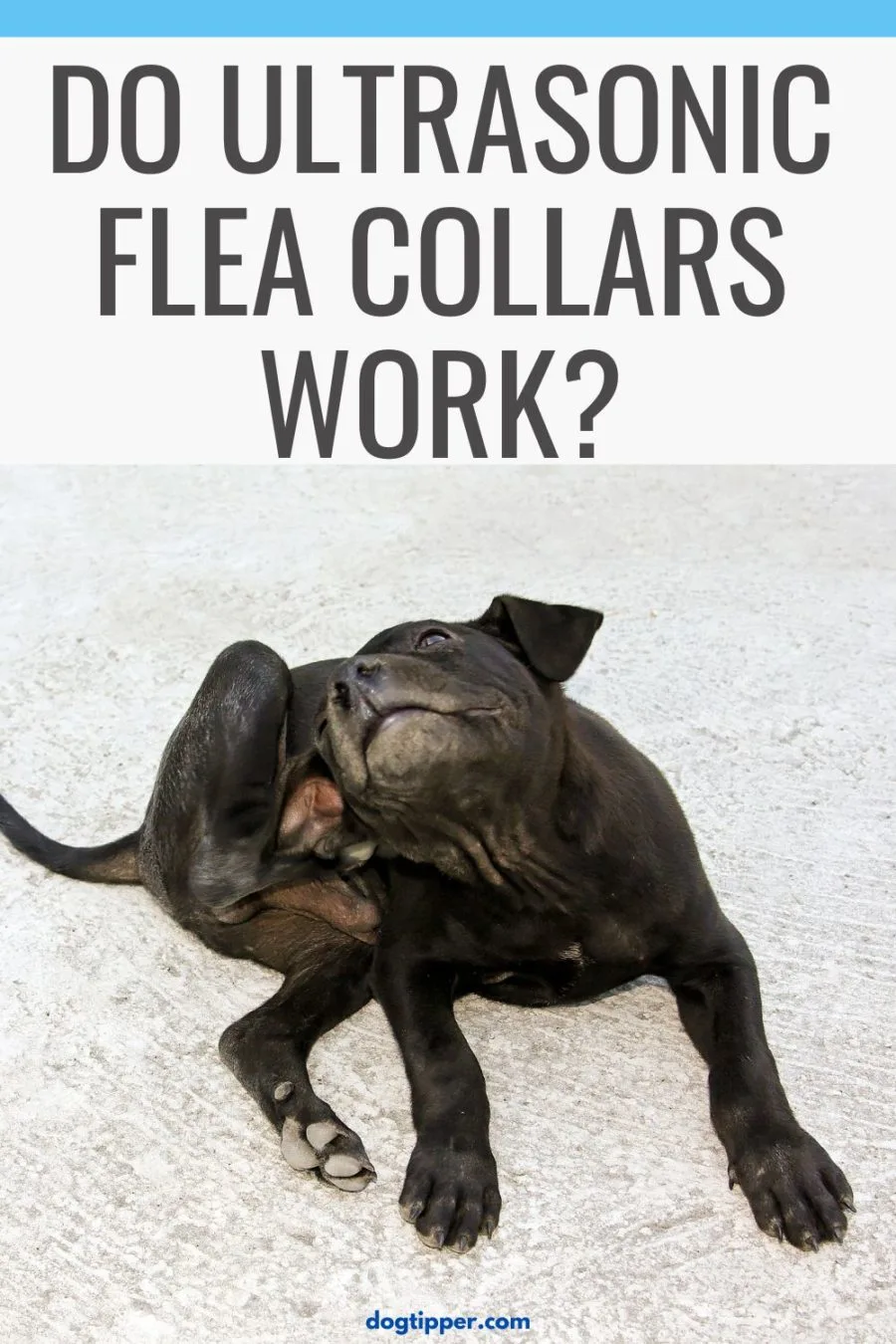Are you looking for a non-chemical way to get rid of fleas? Ultrasonic flea collars are devices that utilize sound waves to supposedly repel pests such as fleas, ticks, and other parasites. Using sound waves at a frequency of 35-45 kHz, the ultrasonic collar strive to create an environment where pests cannot thrive. But do ultrasonic flea collars actually work?

How Are These Flea Collars Supposed to Work?
Ultrasonic flea collars for dogs are designed to emit high-frequency sound waves that are inaudible to humans but can be heard by fleas and other pests. These collars are designed to repel fleas rather than kill them.
Here’s a general overview of how ultrasonic flea collars work:
- Ultrasonic Technology: These collars contain a small device that emits ultrasonic waves. These waves are typically in the range of 20,000 to 60,000 Hertz, which is above the hearing range of humans but within the hearing range of fleas.
- Repellent Effect: When the collar is activated, it emits a continuous or intermittent ultrasonic signal. The sound waves produced by the collar are irritating to fleas and can disrupt their feeding and mating patterns.
- Flea Behavior: Fleas have specialized sensory organs that allow them to detect vibrations and sounds. The ultrasonic waves emitted by the collar interfere with their sensory perception, making the dog less attractive to fleas. In theory, this can discourage fleas from jumping onto the dog or cause them to leave if they are already present.
- Limited Range: Ultrasonic waves have a limited range, typically a few feet–basically the immediate area around the dog’s neck.
Do Dogs Hear Ultrasonic Sounds?
Dogs can hear ultrasonic frequencies, including the sound emitted by ultrasonic flea collars. While humans have a limited hearing range typically up to around 20,000 Hertz, dogs have a much broader hearing range that can extend into higher frequencies. The exact range can vary between individual dogs and breeds, but on average, dogs can hear frequencies up to around 45,000 Hertz or higher.
When using an ultrasonic flea collar on your dog, it’s important to consider that they will be able to hear the sound emitted by the collar. Some dogs may find it uncomfortable or irritating, while others may not be bothered by it at all. If you notice any signs of discomfort or agitation in your dog while using an ultrasonic flea collar, it’s advisable to discontinue its use and explore alternative flea control options.
But Do Ultrasonic Flea Collars Work?
One of our readers asked veterinarian Dr. Audrey to find out if her clients had seen good results with ultrasonic flea collars in killing fleas and other parasites:
Dear Dr. Audrey,
I’m looking for a way to control fleas and wondered if your clients had good luck with ultrasonic flea collars.
A study was undertaken at the Purdue University in Indiana in the late 1980s and the results were published in the Journal of the Acoustical Society of America.
It showed that ultrasonic collars were not at all effective in repelling fleas on cats, and I can see no reason why the results would be the same on dogs.
I can appreciate people being worried about using chemicals on their dogs, but buying one of these devices may just be a waste of money, and you’re likely to still have a flea problem.
Frontline and Advantage applied monthly are still the best option for keeping fleas off your dog. Comfortis is a new product that is given by mouth once a month, and it is extremely effective at killing fleas.
I think your dog would be more comfortable if you invested your hard earned dollars into something that has been proven to be effective.
If you are still interested in learning more about ultrasonic flea collars, you will find several styles on Amazon:
Related posts
Freedom from Fleas on our Nursing Home Visits
Protecting Your Dogs from Fleas and Ticks
Using Diatomaceous Earth to Control Fleas
Controlling Fleas with Nematodes
Pin it to remember it


The purpose of this column is to educate. DogTipper shall have neither liability nor responsibility to any person or entity with respect to any loss or damage caused or alleged to be caused directly or indirectly by this site. This column does not replace the importance of specific advice from your own veterinarian. If you have any concerns at all about your dog’s health, please make an appointment with your vet.
- Review: Jimmy BX7 Pro Anti-Mite Vacuum Cleaner - December 16, 2024
- 🎉 GIVEAWAY: Lord of the Pets Portrait of Your Dog! - November 26, 2024
- Review: Lord of the Pets Portraits - November 17, 2024
